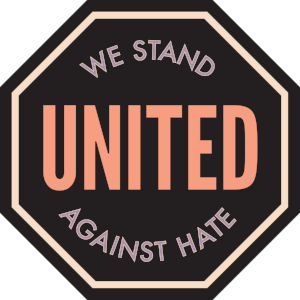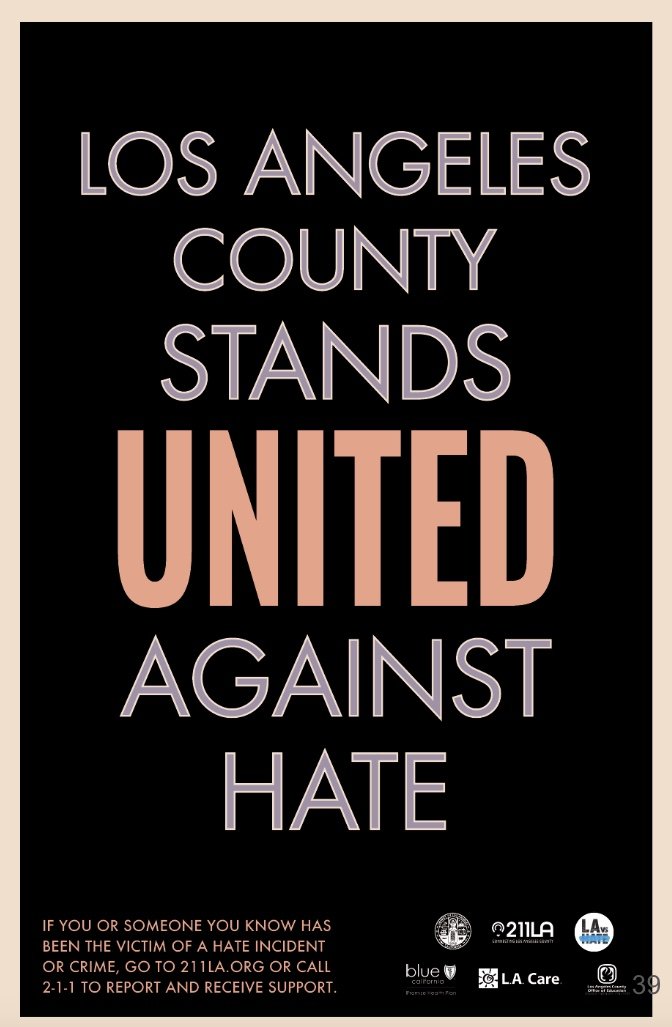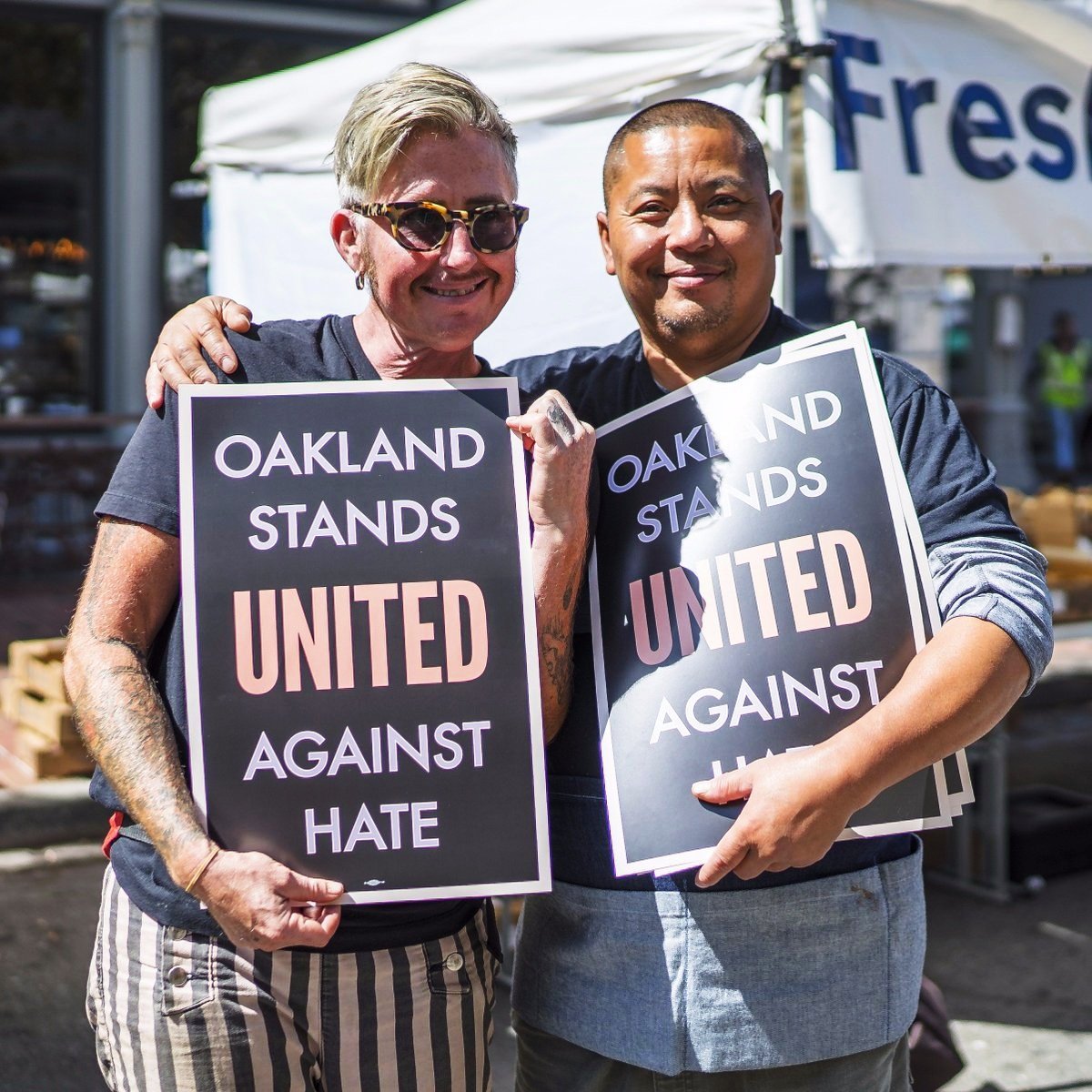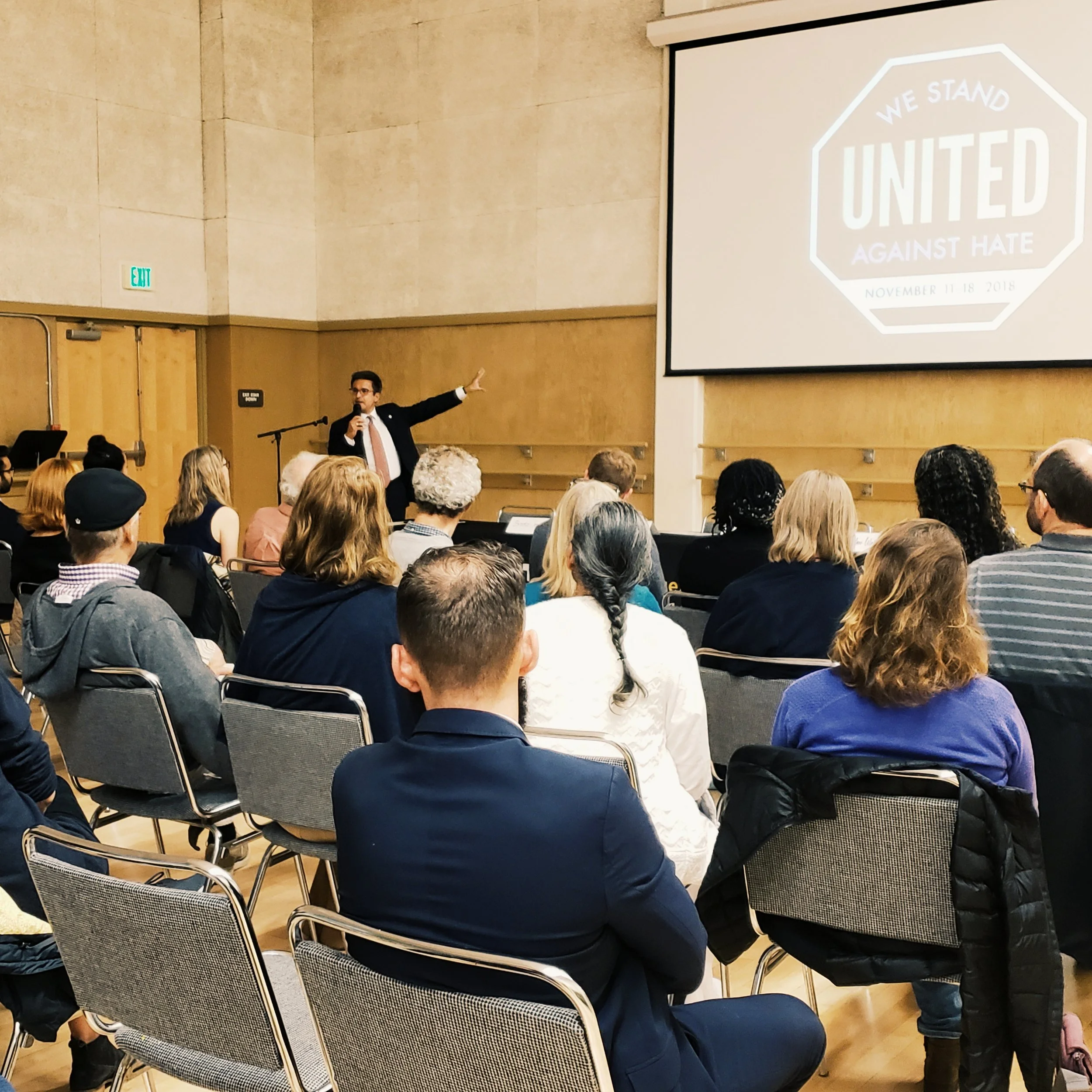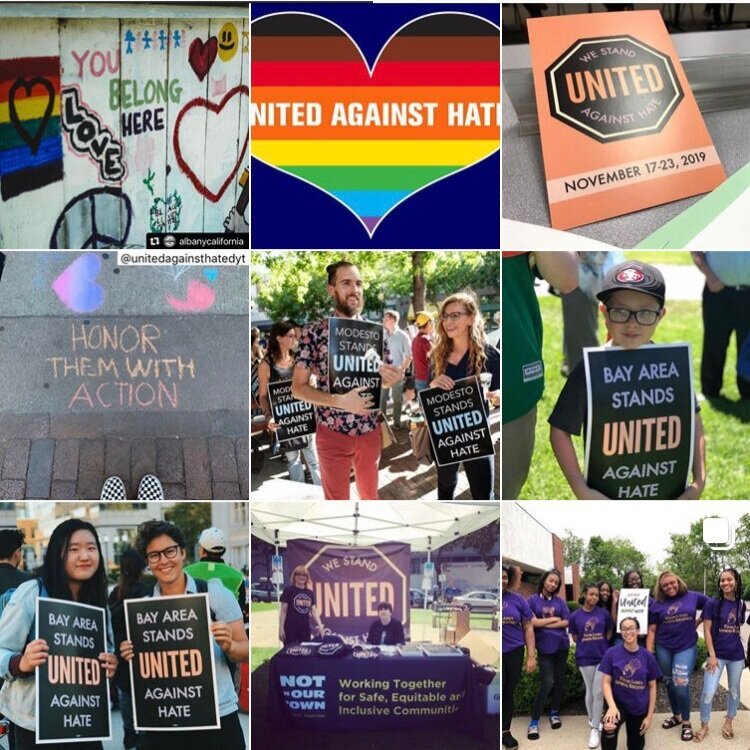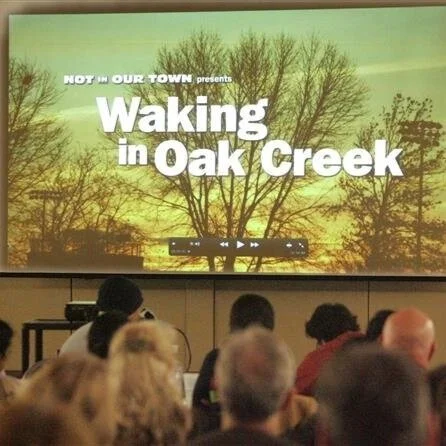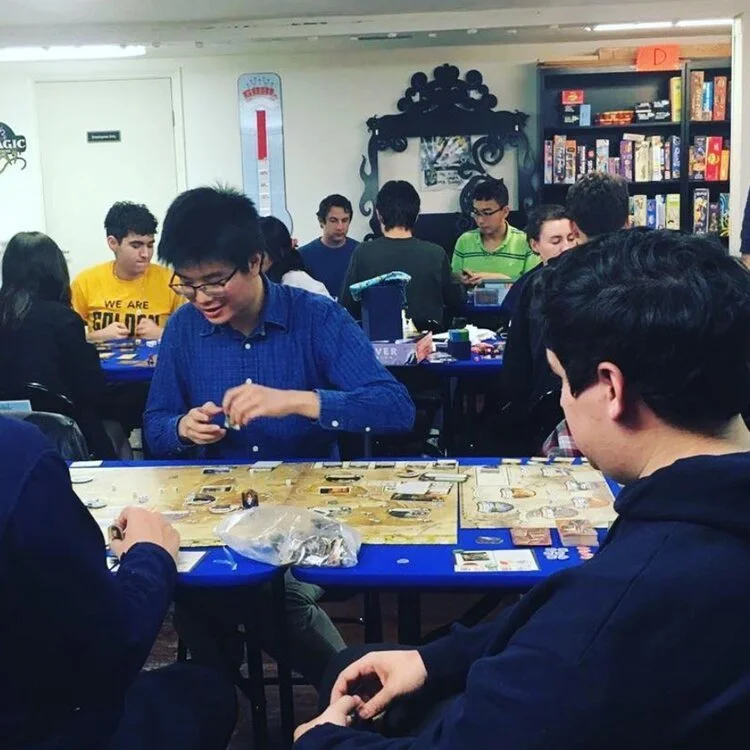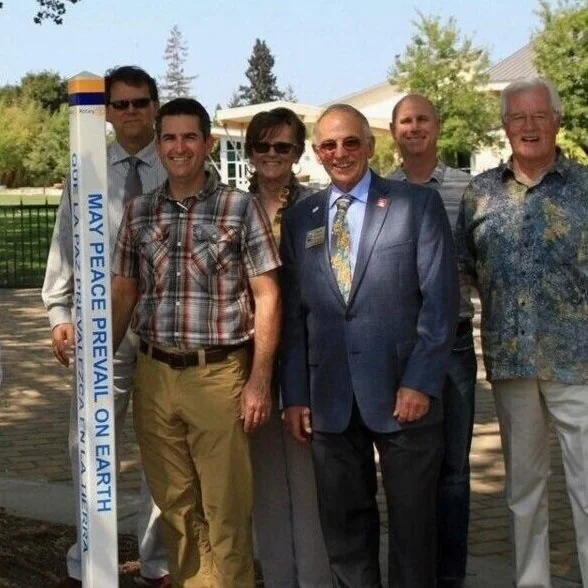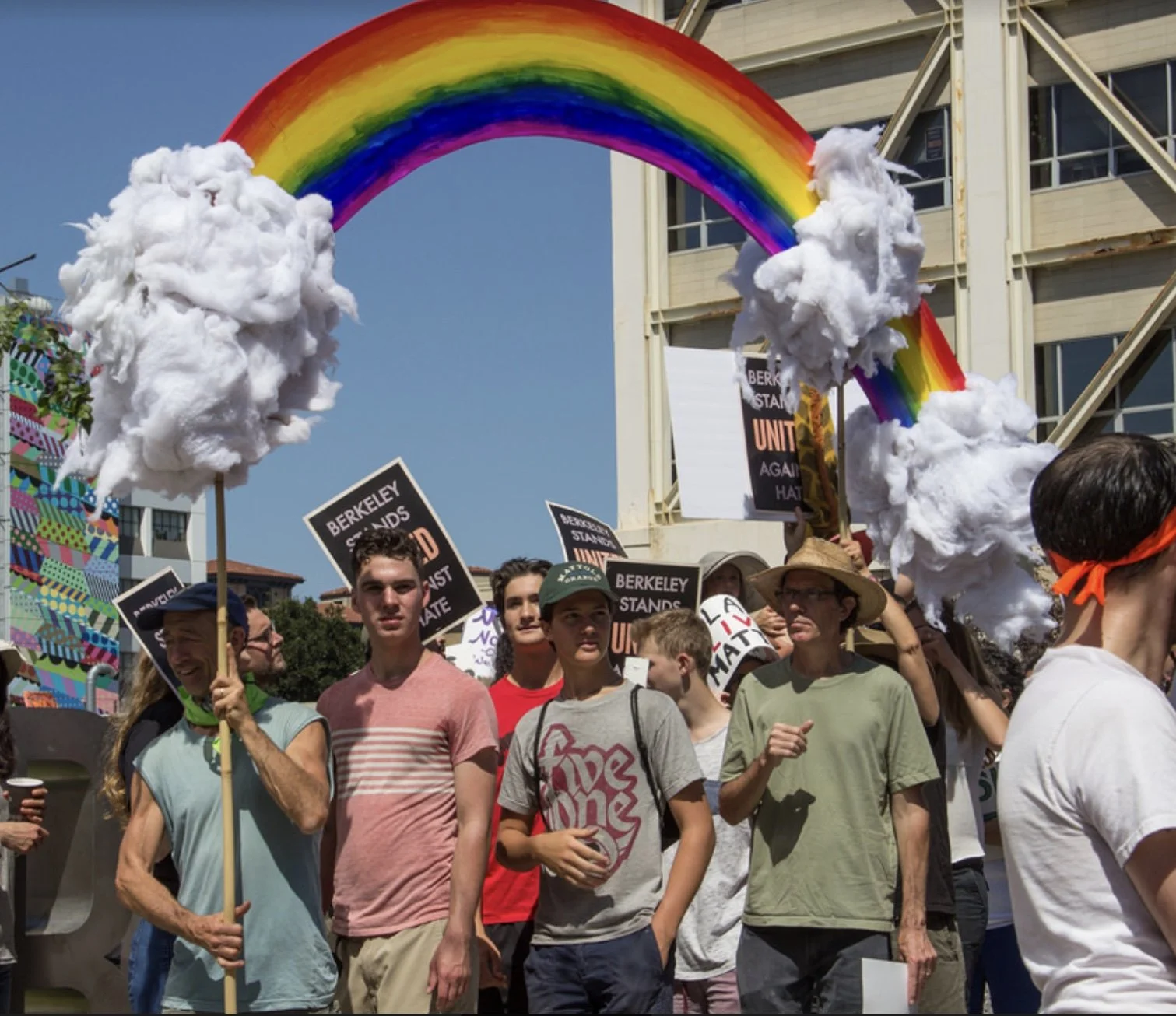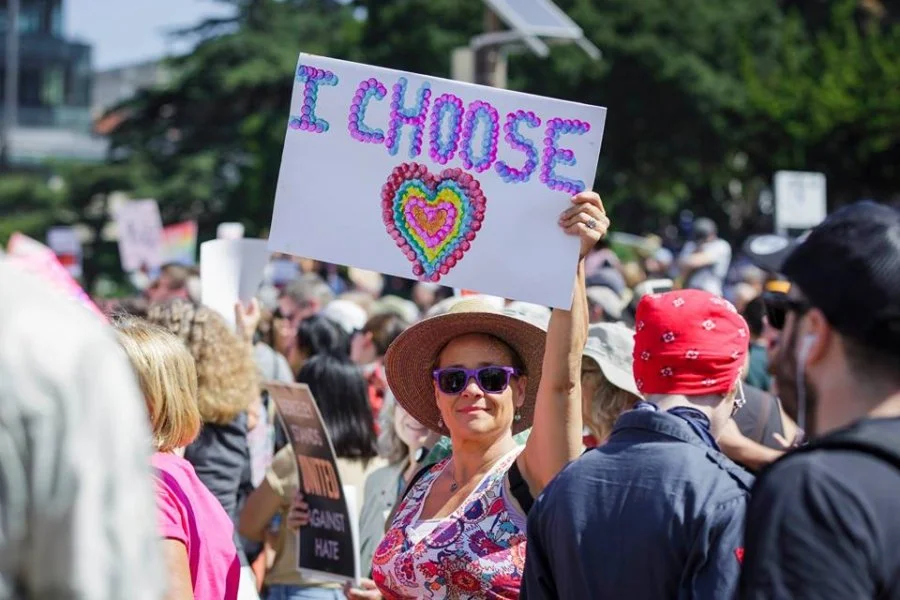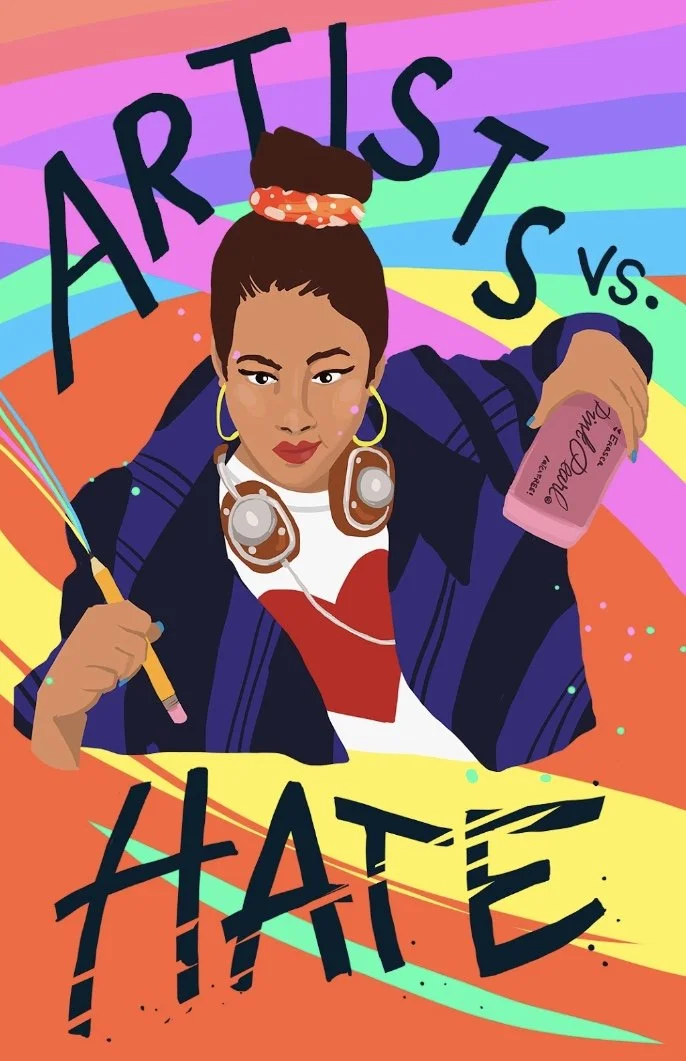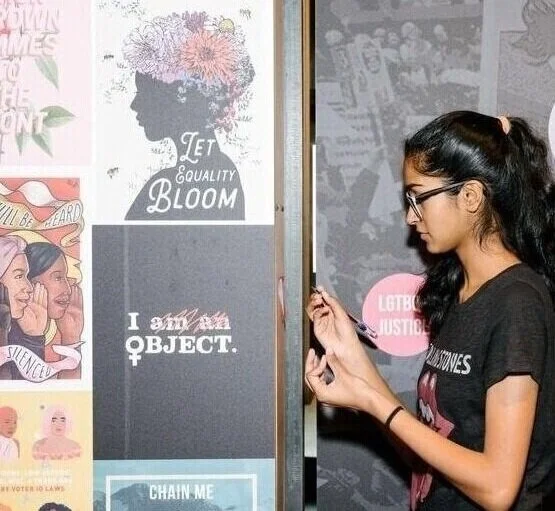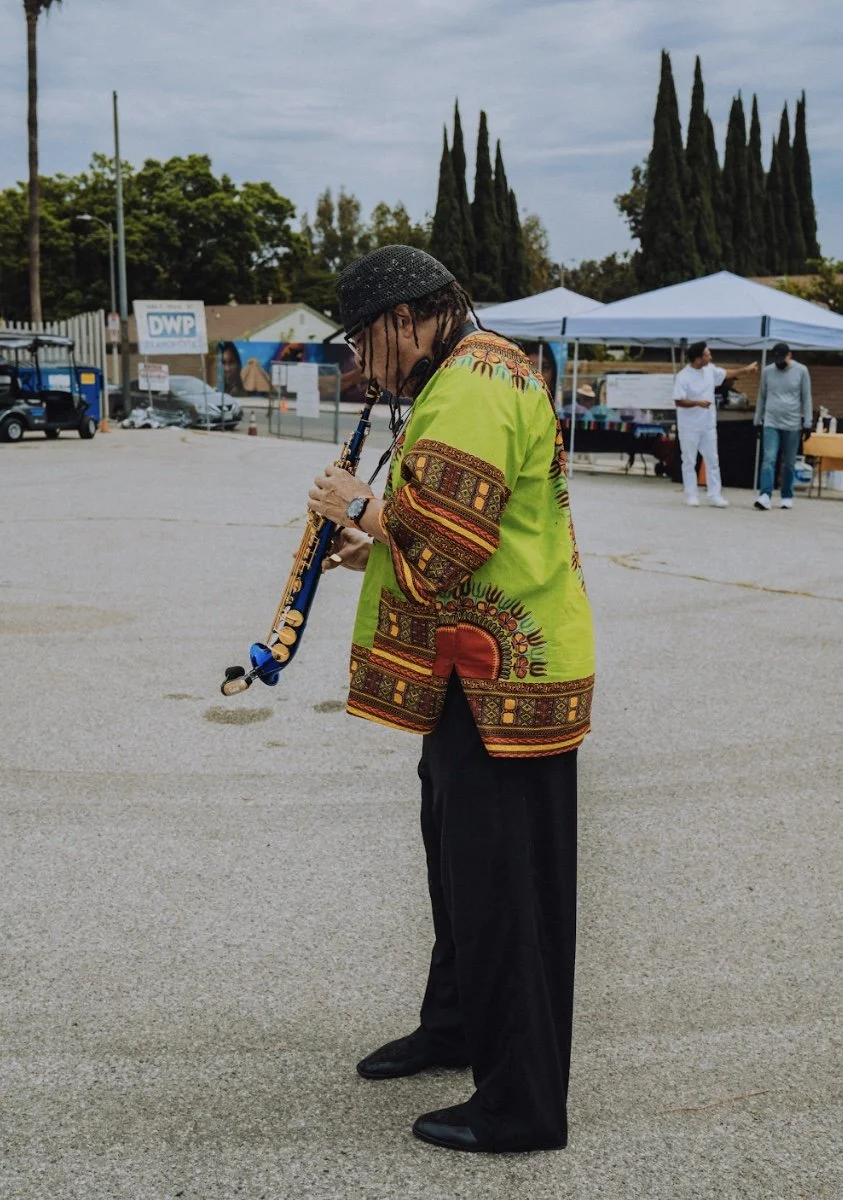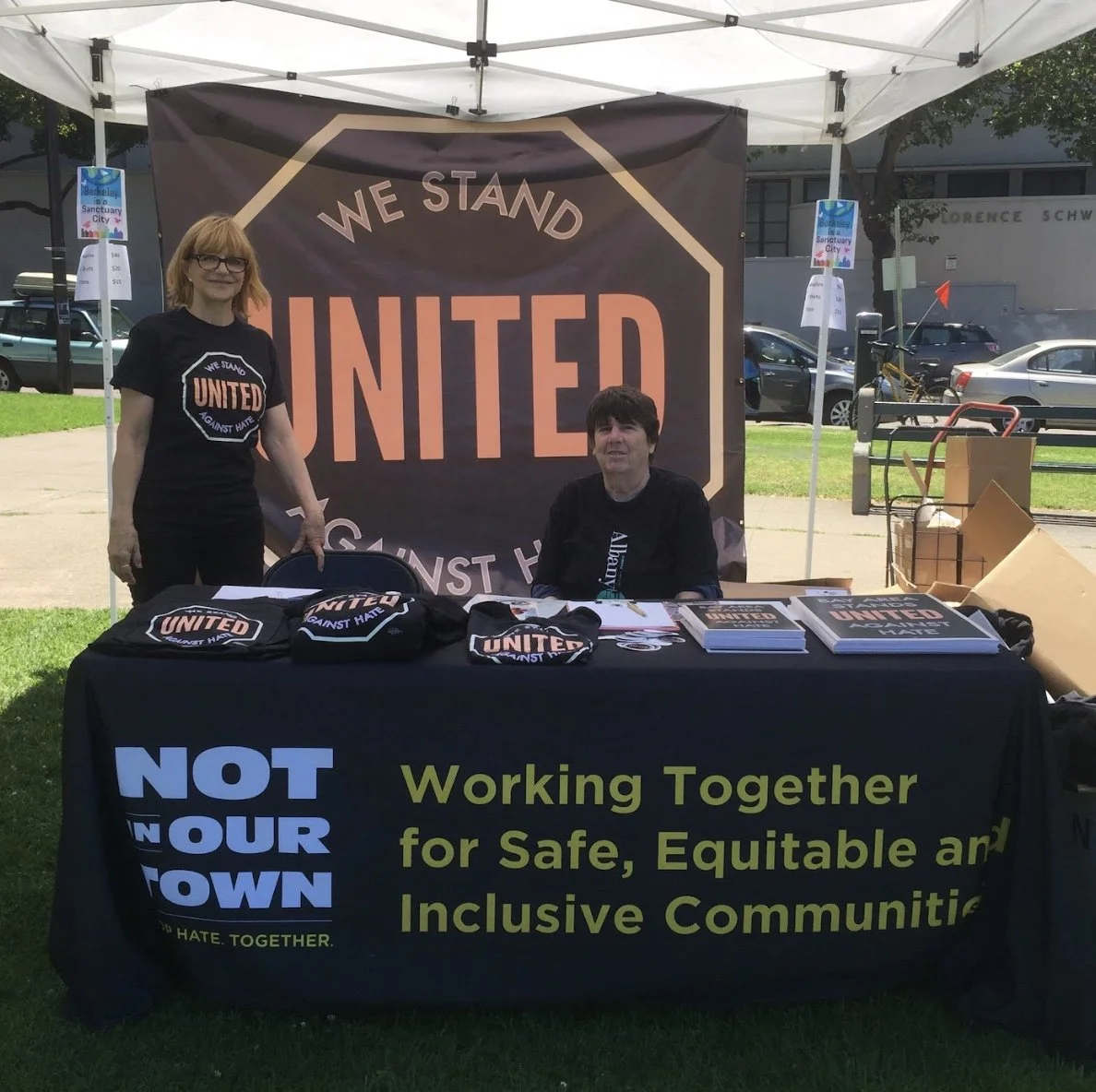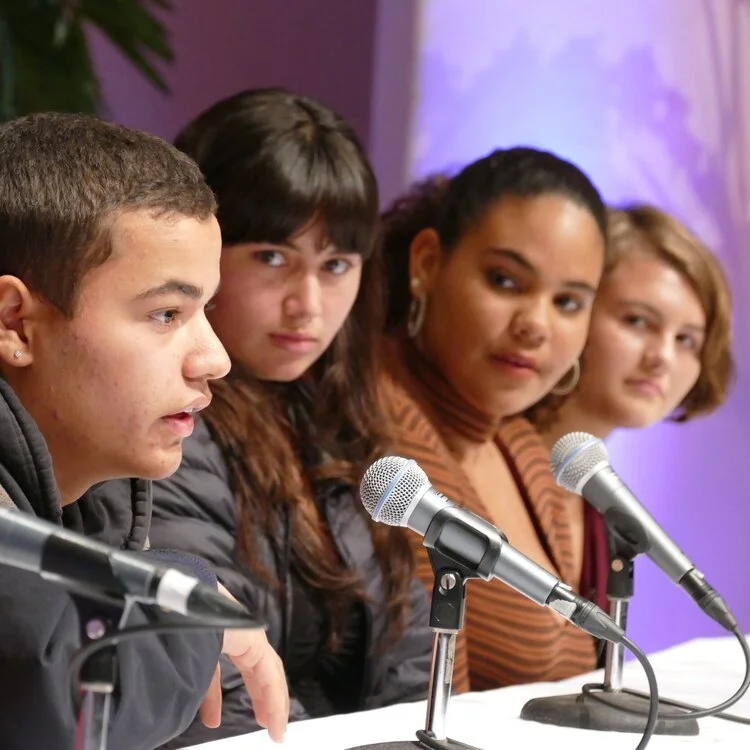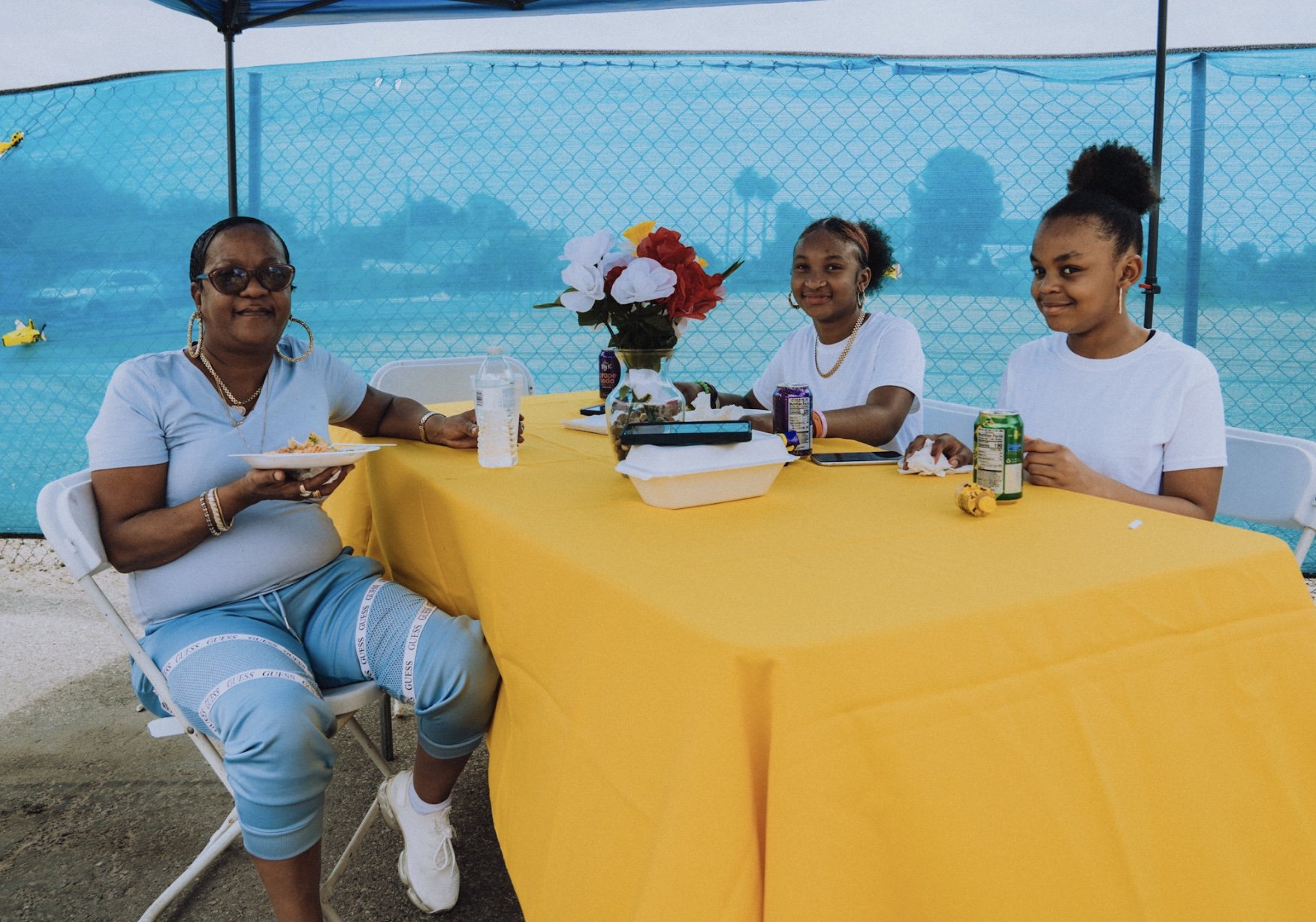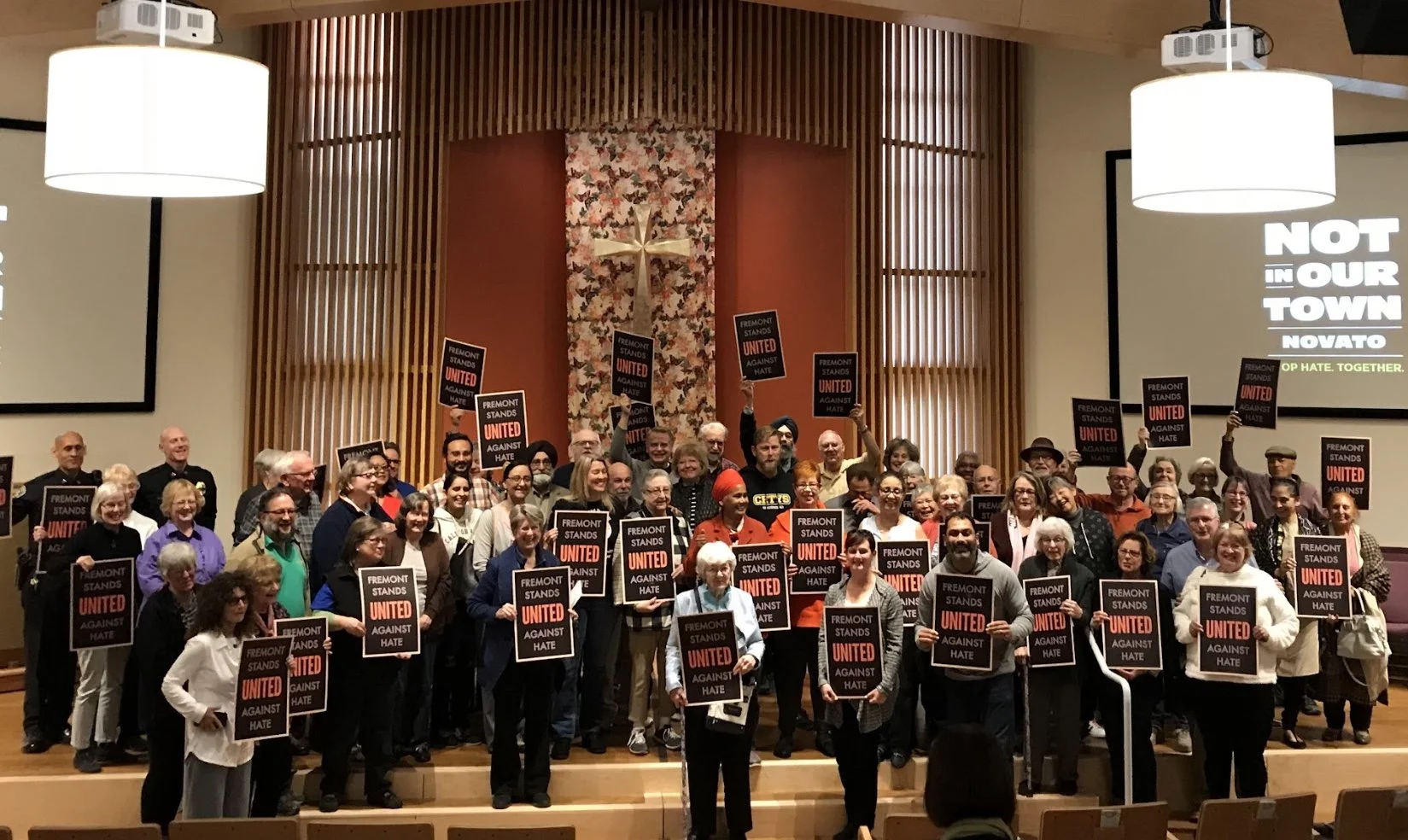20 IDEAS FOR ACTION
Check out the list, download the Toolkit PDF, and scroll down to read more about each idea for action!
INDIVIDUAL ACTIONS
#1: Hang a UAH Poster/Create a Poster Distribution Center
#2: Speak Up/Hold a conversation
#3: Make a UAH Banner
#4: Gather friends, co-workers, or classmates to practice standing up to bigoted remarks or hate speech, in person or online
#5: Post and Promote UAH Week on social media
GROUP EVENTS
#15: Host a Poetry Slam
#16: Organize a Tribute Concert to raise awareness and possibly funds for UAH or victims of hate crimes.
#17: Host a facilitated intervention training to practice speaking up & standing up to hate
#18: Organize a "Teach-in" or a panel of community leaders, professors, or subject experts to discuss the latest hate crime statistics
#19: Create a UAH-themed community potluck
#20: Convene faith leaders to discuss joint actions to respond to hate
#6: Film Screening & Discussion: Not in Our Town offers free films. Sign up to screen a film here!
#7: UAH-themed book list for book clubs, libraries, and schools
#10: Dedicate a Peace Object
#11: Hold a Unity Walk
#12: UAH-themeD sports game or 10k run
#13: Organize a student march/rally
#14: Ask local artists to contribute works with a “Stop Hate” or pro-inclusion theme for an exhibit in a public space
Get the full Community Action Toolkit
#1: Hang a United Against Hate poster in your window/distribute posters to your friends, co-workers, and neighbors
One of the most successful actions of the campaign is the “United Against Hate” posters that are rapidly spreading throughout the Bay Area, California and beyond. This poster has allowed tens of thousands of residents to participate just by displaying this poster in their homes, businesses, cubicles, and civic spaces.
Designate a location such as a city hall, library, fire station, business, or school to provide free UAH posters for your community. Browse the existing posters here, or contact us to request a custom poster.
#2: Hold conversations with your children, family and friends about anti-Muslimism, anti-Semitic, racist, sexist, and anti-immigrant messages they are seeing in the media
One of the best ways, as an individual, to participate in UAH is to talk about the issues that are magnified by this campaign. It is never too early to have a conversation with your family, friends, etc. about how to stand up to hate and bullying. Below are some resources to help you start these conversations.
Resources for Adults/Teens:
Resources for Children/Parents:
#3: Make a UAH Banner
Take UAH to the next level by creating a banner. Last year, several event organizers created a “United Against Hate Week” banner which listed organizations contributing to their week of action or included a place for people to sign the banner as a commitment to stop hate and intolerance. This banner is a tangible reminder to create a safe and inclusive community. Display it at city hall, school, library or house of worship.
#4: Gather friends, co-workers, classmates to practice standing up to bigoted remarks or hate speech, in person or virtually
This activity could be anything from a basic conversation with one friend, coworker, or classmate to a larger organized group of people. This type of conversation can be a safe place to ask questions, raise concerns or better understand your peer’s experiences regarding instances of hate.
Resources:
#5: Post and Promote UAH Week on social media
One of the goals of United Against Hate Week is to rapidly spread the message of the need to stop hate in our communities. Physical posters display that a community promotes a climate of safety and inclusivity. However, the internet and social media present a world of their own! Promote and spread United Against Hate Week and its messages to create a safe and inclusive cyber space!
The United Against Hate team will create daily tweets and posts during United Against Hate Week for easy “copy and paste” posting.
Sample Tweet:
#StandUnitedAgainstHateWeek (@UAHWeek) relies on the generosity of those who care deeply about ensuring that we stand up to hate and make it a welcoming place for all. Please consider donating to support their work! Donate
Sample Facebook/Instagram Post:
As many of you may know, I am a proud supporter of Bay Area Stands United Against Hate (@BayAreaStandsUnited) Week (Oct. 19-25, 2025) and the efforts of communities around the Bay Area to create a welcoming Bay Area for all. These efforts need funding to keep going. Donations will go towards launching the United Against Hate poster store, increasing outreach, and organizing events during the month of November and beyond. Please consider donating if you can! Donate #standunitedagainsthate
#6: Host a Film Screening/Community Discussion
Screen a Not In Our Town film or other film with a United Against Hate Week theme. Invite your friends, neighbors, social network, PTA, and/or student or faith group.
Communities have faced hate before and we can learn from one another. Screenings help provide a way for people to convene and open up the discussion about how to stand up to hate together. This event can be a launch pad for your ongoing activity.
Start with one of these films: Repairing the World: Stories from the Tree of Life, Waking in Oak Creek, Light in the Darkness, Not In Our Town: Manhattan Beach, When Hate Happens Here, or the original Not In Our Town film about Billings, MT
Screening Guides provide advice on how to organize a screening, please revise these guides to comply with COVID restrictions.
*See appendix for Impact Data for NIOT Screenings
#7: Create a “UAH Theme” List for Book Clubs, Libraries and Schools
Ask your local librarian or bookstore to curate a book list or display books that encompass themes of fighting racism, bullying, discrimination, hate and more!
ADULT READING LIST:
New York Times Reading List Good Reads
CHILDREN READING LIST:
#8: Hold a Candle-light Vigil to support victims of hate
Want to host a Vigil in your community?
Vigils are a way to unite our communities together and remind us of what is at stake. Read the names together of people who were lost or harmed in El Paso, Dayton, Gilroy, Poway, Pittsburgh, Charleston, and other attacks in our communities.
Resources:
#9: Host a “Game Night Against Hate”
Have your community center stay open late to organize a Game Night for UAH. There can be board games that promote working as teams and the event could centered around practicing UAH values and pledging to take future actions to create a safe and inclusive community. For example, Games of Berkeley has hosted a cooperative game night in honor of UAH Week in years past.
#10: Dedicate a sign or symbolic (e.g. welcome Sign/Peace Pole) object in the city to promote inclusion
One effective way for cities to demonstrate their commitment to United Against Hate Week is to dedicate a symbolic object like a peace pole or welcome sign. This object represents a city’s effort to promote UAH values including fostering acceptance, inclusion and safety. This object should be placed in a central public area.
In 2018, the City of Emeryville, CA devoted a Peace Pole next to their community center as a way to celebrate United Against Hate Week.
In 2014, Newark, CA affirmed its dedication to creating a safe community by posting a “Welcome Sign”. For more information on the impact of the sign click here.
#11: Hold a Unity Walk
Unity Walks are great way to bring the community together to celebrate or honor a cause or recent event. In 2019, Castro Valley residents collaborated with the Castro Valley Community Alliance to host a United Against Hate Week unity walk to honor the victims of the New Zealand shooting.
For more information about this event click here.
Suggestions for Organizing a Unity Walk
Find central location or pick a street and request city permit (if required)
Gather speakers/local businesses to set up tables
Create a United Against Hate banner
Bring signs for people to carry during the walk
Choose a specific theme that represents UAH themes
#12: UAH-Themed Sports Game
Devote a school or club sporting event to the United Against Hate Week Mission. Have both sports teams participate by wearing a t-shirt with the UAH logo.
Before the game starts, a team leader or referee can acknowledge the United Against Hate Campaign by briefly introducing the week of action and distributing the UAH pledge for players and spectators to sign.
#13: Organize a UAH Rally
Rallies are great way to unite the community together to celebrate or honor a cause or recent event.
Suggestions for organizing a rally: Find a central location like a park or open space (preferably with seating) and request city permit. Gather diverse local speakers and musicians who can inspire people to action and to take the next steps. Ask students to present a skit on how to stand up to hate and bullying. Ask local organizations and businesses to set up tables to share ways to get involved. Create a UAH banner. Sign postcards/ banners/ messages of support for families of victims of hate. Bring signs for people to hold during the rally. Publicize the event before and report on the success after.
Resources:
#14: Ask local artists to contribute works with a “Stop Hate” or pro-inclusion theme for an exhibit in a public space.
Connect with artists in your neighborhood who can support your “Stop Hate” or pro-inclusion movement and work with them to create an artwork that speaks to community members and promotes a message of inclusivity.
#15: Host a Poetry Slam
Invite students and community members to write poetry to express their thoughts and opinions about how to create a safe, inclusive community. Last year a local radio station hosted a Poetry Slam in honor of United Against Hate Week.
Ask students or local artists to contribute a piece that represents one of the UAH values and display them outdoors or in a community gathering space.
#16: Organize a Tribute Concert for UAH
Invite local artists to perform as a tribute for United Against Hate Week and raise awareness. This event could be a fundraiser for UAH or for victims of hate crimes.
Resources:
#17: Host a facilitated intervention training
Invite local groups to give a training to your workplace, community and friends that will help individuals garner the skills to stand up to hate. These trainings could consist of anti-bias training, how to be an ally training or bystander training.
#18: Organize a "Teach-In"
Ask local professors, community leaders or subject experts to participate in a “teach-in” on a topic that is relevant to United Against Hate Week. This type of event could range from a lecture or panel and community discussion about racial and gender equality to inviting a special guest or guests to explain how they overcame hate or a hate crime.
Examples:
UC Berkeley invited distinguished UCLA Professor, Sherene H. Razack to give a lecture on”Race and the Apparatus of Disposability”
UC Berkeley hosted a teach-in that explored the meaning of Sanctuary for All in Berkeley and what this means for community practice and public policy. The discussion focused on how to combat Islamophobia and anti-Semitism as part of creating a sanctuary city for all.
The Council of American-Islamic Relations hosted a free bystander intervention where participants learned about the history and principles of nonviolence, and they practiced specific de-escalation techniques as a bystander in a variety of scenarios.
#19: Create a UAH-Themed Potluck
Organize a potluck at your school, community or church. The overarching goal of the potluck would be to bring people together to learn about the beliefs and faith traditions of others through exploration and dialogue. An event like this can foster an atmosphere of mutual respect and understanding and enable all involved to stand as a witness for tolerance, respect and understanding.
#20: Convene Congregations and Faith Leaders
Host an event at your house of worship to discuss United Against Hate Week and how your faith tradition and community can model action. Alternatively, consider organizing an event that brings different faith groups together in respectful presence. This type of event will provide an opportunity for people to meet people with other faith traditions, share their experiences, listen to each other, and have conversations about matters of faith and spirituality in a
